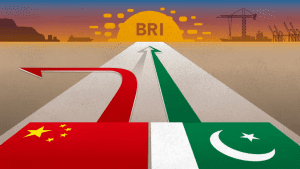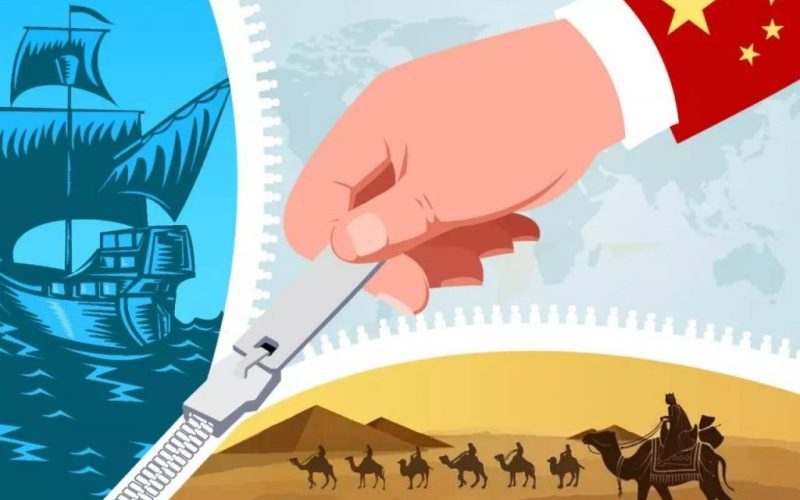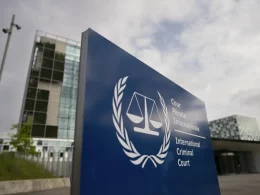The Belt and Road Initiative (BRI) has had a significant impact on global trade policies. As China continues to invest in infrastructure projects across Asia, Africa, and Europe, it is shaping the way countries around the world approach trade agreements and regulations. The BRI has become a driving force behind the development of new trade routes and economic partnerships, leading to a shift in the global trade landscape.
One of the key political impacts of the Belt and Road Initiative on trade is the way it has influenced the policies of countries participating in the initiative. By investing in infrastructure projects and promoting connectivity between regions, China is encouraging countries to rethink their trade strategies and consider new opportunities for economic growth. This has led to the development of new trade agreements and partnerships that may not have been possible without the BRI.
Additionally, the Belt and Road Initiative has sparked discussions about the need for more inclusive and sustainable trade policies. As countries work together to build infrastructure and improve connectivity, they are also considering the social and environmental impacts of their trade agreements. This has led to a greater focus on promoting fair trade practices and ensuring that all parties involved benefit from the economic opportunities created by the BRI.
Shift in geopolitical alliances

The Belt and Road Initiative is not only reshaping global trade policies but also leading to a shift in geopolitical alliances. As China continues to invest in infrastructure projects around the world, it is forging new partnerships and alliances that are changing the geopolitical landscape.
One of the key political impacts of the Belt and Road Initiative on global alliances is the way it is bringing countries together to collaborate on large-scale infrastructure projects. By working together to build roads, railways, and ports, countries are forming new alliances that are based on mutual economic interests and shared goals. This has led to the development of stronger relationships between countries that may not have traditionally been allies.
Additionally, the Belt and Road Initiative is challenging existing geopolitical alliances and power structures. As China’s influence grows through its investments in infrastructure projects, it is changing the balance of power in regions around the world. This has led to tensions between countries that see China’s expanding influence as a threat to their own interests.
Impact on regional stability
The Belt and Road Initiative has had a significant impact on regional stability by promoting economic development and cooperation among participating countries. As China invests in infrastructure projects across Asia, Africa, and Europe, it is helping to create a more stable and prosperous region.
One of the key political impacts of the Belt and Road Initiative on regional stability is the way it is bringing countries together to work on large-scale infrastructure projects. By promoting connectivity and economic development, the BRI is helping to build stronger relationships between countries and reduce tensions that may have existed in the past. This has led to increased stability in regions that have historically been prone to conflict.
Additionally, the Belt and Road Initiative is enhancing political impacts in participating countries by promoting economic growth and development. As countries work together on infrastructure projects, they are also strengthening their political ties and creating new opportunities for cooperation. This has led to greater stability and security in regions where the BRI is active.
Changes in international economic regulations
The Belt and Road Initiative is benefiting from international economic regulations by promoting connectivity and economic development across regions. As China invests in infrastructure projects around the world, it is working within existing economic regulations to facilitate trade and investment.
One of the key political impacts of the Belt and Road Initiative on international economic regulations is the way it is encouraging countries to work together to address the challenges of the modern global economy. By promoting connectivity and infrastructure development, the BRI is helping to create new opportunities for trade and investment that may not have been possible without international cooperation. This has led to discussions about the need for more inclusive and sustainable economic regulations that can support the goals of the BRI.
Additionally, changes in regulations may impact BRI projects and partnerships as countries navigate the complexities of international trade agreements. As countries work together on infrastructure projects, they are also considering the regulatory frameworks that govern trade and investment. This has led to discussions about the need for more transparent and fair economic regulations that can support the goals of the BRI.
Expansion of China’s political influence
The Belt and Road Initiative is promoting China’s political influence by investing in infrastructure projects and promoting economic development across regions. As China continues to expand its global presence through the BRI, it is strengthening its political influence and shaping the way countries around the world approach trade and investment.
One of the key political impacts of the Belt and Road Initiative on China’s political influence is the way it is helping to build stronger relationships between China and participating countries. By investing in infrastructure projects and promoting connectivity, China is creating new opportunities for economic cooperation and partnership. This has led to an expansion of China’s political influence in regions where the BRI is active.
Additionally, the Belt and Road Initiative is strengthening China’s global political presence by promoting economic development and cooperation among participating countries. As China works with countries to build roads, railways, and ports, it is also building political ties and creating new opportunities for collaboration. This has led to an increase in China’s influence on the global stage and a shift in the balance of power in regions around the world.
Reactions from major global powers

China’s Belt and Road Initiative strategy is influencing major global powers’ policies by promoting economic development and connectivity across regions. As China continues to invest in infrastructure projects around the world, it is shaping the way countries like the US and EU approach trade and investment.
One of the key political impacts of the Belt and Road Initiative on major global powers’ policies is the way it is challenging existing power dynamics and alliances. As China expands its influence through the BRI, it is changing the balance of power in regions around the world and leading to tensions between major global powers. This has led to reactions from countries like the US and EU, who see China’s growing influence as a threat to their own interests.
Additionally, the Belt and Road Initiative is leading to reactions from major global powers as they navigate the complexities of international trade agreements and economic regulations. As China invests in infrastructure projects and promotes connectivity, countries are considering how the BRI may impact their own policies and partnerships. This has led to discussions about the need for more transparent and fair trade practices that can support the goals of the BRI.












